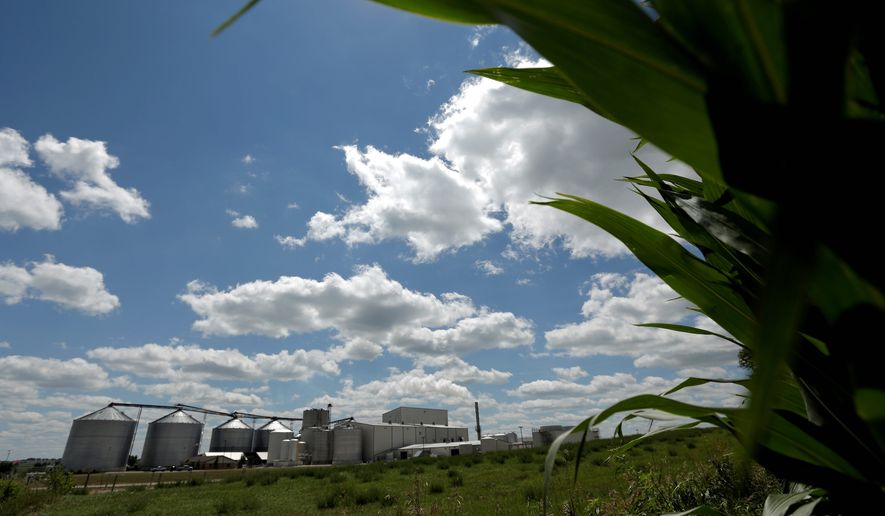Faced with an uncertain future in the U.S., ethanol proponents have mounted a public push north of the border, urging Canada to raise its own renewable-fuel levels for gasoline.
Environment and Climate Change Canada, the nation’s top environmental agency, is in the process of developing a new “Clean Fuel Standard,” a broad set of new regulations aimed at reducing carbon emissions and bringing cleaner-burning fuels to the pump. Part of the review includes taking a second look at the country’s renewable-fuels rule, which currently calls for an average of 5 percent ethanol by volume in gasoline.
By comparison, U.S. gasoline this year topped 10 percent ethanol on average for the first time.
American ethanol producers — which already have found Canada to be fertile ground for exports — say the Canadian government, if it’s serious about reducing carbon emissions, ought to seriously consider raising that 5 percent threshold to at least 10 percent.
“The U.S. ethanol industry applauds Canada’s desire to reduce the carbon intensity of its transportation fuel market, and we see our northern neighbor as a strong partner in renewable fuels expansion,” said Tom Sleight, president and CEO of the U.S. Grains Council, which works to find new export markets for American corn, grain, ethanol and other products.
“Our industry stands ready to ensure that the supplies Canada needs are available,” he added in a statement last week, after the council, the Renewable Fuels Association (RFA), and other pro-ethanol groups submitted formal comments to the Canadian government.
In addition to calling for widespread availability of E10 — gasoline with 10 percent ethanol and the most common blend available at American pumps — U.S. ethanol backers also said “regulatory barriers” should be removed to make it easier for producers to sell their goods in Canada.
The country already is the third-largest importer of American ethanol. The U.S. ethanol industry in March exported 127.8 million gallons of product, and 22.7 million gallons of that went to Canada, according to information from the RFA.
Moving forward, the Canadian government says ethanol mandates are under review but wouldn’t commit to forcing more of the fuel into gasoline supplies.
“An assessment of how the renewable fuels regulations could support the Clean Fuel Standard is being undertaken as part of the development of the regulatory design including identifying how the two measures would work together to achieve meaningful (greenhouse gas) emission reductions while minimizing the burden to regulated parties for compliance,” Maja Stefanovska, a spokeswoman for Environment and Climate Change Canada, said in a statement to the Washington Times.
Complicating the ethanol market in Canada are provincial “blend mandates” for gasoline, meaning the amount of ethanol at the pump can differ from province to province. Ontario and British Columbia, for example, have volumetric ethanol blend mandates of 5 percent, while Saskatchewan’s stands at 7.5 percent and Manitoba has a threshold of 8.5 percent.
“Quite frankly, it’s a fragmented mess,” said Peter Boag, president and CEO of the Canadian Fuels Association, a trade group that represents Canada’s transportation fuels industry. “We support a new national Clean Fuel Standard that would replace the inefficient and costly provincial patchwork that exists today.”
But while Mr. Boag said he and other oil-and-gas proponents support the country’s review process, he said mandating higher ethanol content in gasoline would be a mistake.
“To impose another requirement would only constrain obligated parties’ ability to innovate and find new cost-effective ways to comply to meet the objective,” he said.
In the U.S., the federal Renewable Fuel Standard requires that increased amounts of ethanol be blended into the nation’s gasoline supply each year. In late 2016, that federal standard led to the average ethanol content in a gallon of gas sold at American pumps to top 10 percent for the first time.
While the standard remains controversial, it’s led to uniform amounts of ethanol in most gasoline across the country.
But in Canada, ethanol proponents say the differing standards actually lend themselves to a greater national figure, since necessary infrastructure is already in place to achieve levels higher than 5 percent.
“The wholesale infrastructure to blend a higher level of ethanol exists across Canada. The only issue is the political will to ensure that volumes are increased,” read comments submitted to the Canadian government from the RFA, the U.S. Grains Council and Growth Energy.
• Ben Wolfgang can be reached at bwolfgang@washingtontimes.com.




Please read our comment policy before commenting.